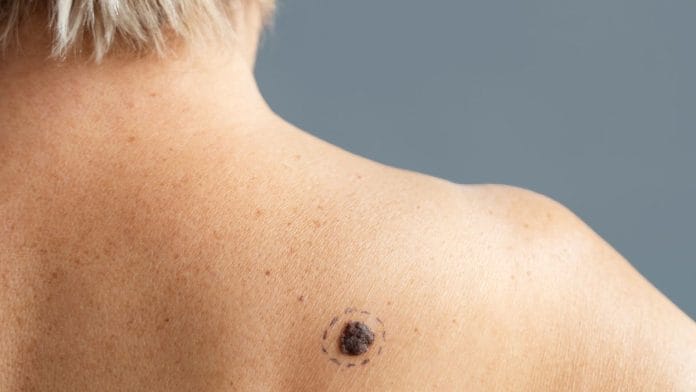Every Bollywood movie from the ’90s had the scene: The hero, dressed in an impeccably white shirt, riding a motorcycle into the sunset, basking in the golden hour glow.
For generations, we’ve had a complicated, romantic relationship with the Indian sun. We see it as the source of life—and of vitamin D and perfect golden-hour selfies. But lately, that relationship is starting to get a little toxic.
Skin cancer, including the more serious melanoma, is on the rise across India. This isn’t a distant health scare; it’s a reality fuelled by our modern lives, and it’s affecting more and more young Indians.
Was it always the case?
Blame it on the changing rhythms of our lives. Our collective lifestyle has done a complete 180. We’re chasing that wellness high with outdoor yoga, marathon training, and beach vacations—all ironically leading to greater UV exposure. It’s like we’re all living in our own montage of sun-drenched activity, forgetting the villain lurking in the rays.
But the sun isn’t acting alone. It’s found a powerful accomplice: pollution. We’re all too familiar with the hazy smog that blankets our cities. Those environmental toxins don’t just hurt our lungs; they weaken our skin’s natural barrier. Pollution essentially creates free radicals that accelerate the damage caused by UV rays and make our skin more vulnerable. It’s a toxic cocktail of sun and smog, and our skin is soaking it all in.
And then there’s the vitamin D paradox. We’re a nation suddenly terrified of a deficiency, rushing to get our levels checked. But in our quest to soak up the “good” sun, we’re often forgetting to protect ourselves from its harmful effects.
Also read: Don’t believe these 10 sunscreen myths
No longer affecting just the elderly
Perhaps the most alarming part of this story is who it’s affecting. Skin cancer is shedding its image as an “old person’s disease”. Younger Indians are being diagnosed at increasing rates.
The biggest hurdle? A massive awareness gap. So many patients show up at my clinic only in the advanced stages. Why? Because a changing mole is easy to ignore. Because “I didn’t want to stress.” Because we simply don’t know what to look for.
We’re great at slathering on fairness creams, but the humble sunscreen is yet to become a non-negotiable part of our daily routine.
Sunscreen: Your skin’s armour
1. Become a sunscreen advocate
This is your daily non-negotiable. Make a broad-spectrum sunscreen with a high SPF as essential to your day as your phone charger. And don’t forget to reapply every few hours. Yes, even when you’re indoors, near a window. Yes, even on cloudy days. Yes, UV rays are quite persistent.
2. Eat your sunscreen
As one dermatologist wisely says, fighting damage from the inside is key. An antioxidant-rich, healthy diet helps tremendously fight pollution-related free radicals. Load up on berries, greens, and nuts. It’s skincare you can eat.
3. Get mole-literate
Your skin tells a story—you just have to learn to listen. Get familiar with the spots on your body. If you see a mole that’s acting sus—changing in size, shape, colour, or bleeding or itching—visit a dermatologist right away. A simple check-up can literally save your life.
4. Seek shade
Embrace hats, sunglasses, and long-sleeved clothing. That stylish oversized shirt isn’t just a fashion statement—it’s your shield.
The rise of skin cancer in India is a definitive wake-up call. It’s about rewiring our relationship with the sun—from careless exposure to mindful protection.
So, lather on that sunscreen. Be that annoying friend who reminds everyone to reapply. In my eyes, it’s the most sincere love language.
Pay attention to your skin. Beyond beauty, it’s the resilient, living armour that sees you through every single day. It’s up to you to make sure that it stays healthy for all the sunsets to come.
(Edited by Prasanna Bachchhav)






